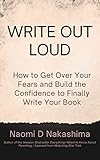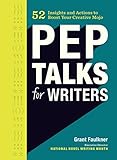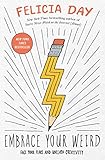Audio Playback Powered by Amazon Web Services |
Disclosure: Some of the links on this post are affiliate links, which means I may receive a small commission if you click a link and purchase something I have recommended. While clicking these links won't cost you any extra money, they will help me keep this site up and running and keep it ad-free! Please check out my disclosure policy for more details. Thank you for your support!
It's that time of year again! When almost every writer I know is either asking about or preparing for NaNoWriMo.
394,507 writers and authors signed up to participate in NaNoWriMo in 2017. But only 58,000 people crossed that finish line. That's a success rate of about 14%.
Why? What did those 14% have that the others didn't? What was their secret?
Well, I can't speak for all of them, but I'm pretty sure that for at least a majority of them, it's because they spent some time preparing for NaNoWriMo before November.
Now, that's not to say that you have to spend weeks or months preparing for NaNoWriMo or you won't make it — my first NaNoWriMo (back in 2007), I heard about it less than a week before it started and jumped in at the last minute completely unprepared and with no idea what I was going to write. The fact that I made it through was more a testament to the fact that I didn't really have much of a life outside of writing at that time.
But, I was stressed. Every time I fell behind on my word count, I stressed. Every time one of my buddies crept closer to the finish line, I stressed.
The next year, I spent more time preparing for NaNoWriMo. And while I still didn't have much of a life outside of writing, taking that time to prepare made me feel a whole lot better about the whole process (not to mention less stressed during the whole month).
Since then, I've gotten married, had two kids, and gotten divorced. So while writing is still very much a huge part of my life (both as a freelance writer and as an author), I've got other things to worry about. I can't imagine trying to take on something as big as NaNoWriMo now without preparing for it at all.
So, I've put together this guide to help you get prepared for NaNoWriMo.

Preparing for NaNoWriMo: 6 Steps to get you ready to write
- Step One: Should you do NaNoWriMo This Year? Have you even decided yet whether or not you want to participate in NaNoWriMo this year? Here is a list of pros and cons to help you decided if NaNoWriMo should be a part of your plans this year.
- Step Two: Set up a Support System and Start Training for NaNoWriMo. Writing is just like any other skill — the more you do it, the better you get at it. And having an accountability partner is a great way to help you through it.
- Step Three: Gathering Inspiration and Story Ideas for NaNoWriMo. Whether you're a planner or a pantser, it'll still be a lot easier to get through NaNoWriMo if you have some idea of what you want to write.
- Step Four: Planning Everything for NaNoWriMo. Do you get distracted easily? Will someone be around to help make sure you eat? There is more to plan than your novel.
- Step Five: Setting up your NaNoWriMo Goals. 50,000 words might be the finish line, but that doesn't mean it's your actual goal. Get some tips on how to set more personalized goal for yourself for NaNoWriMo.
- Step Six: Turn off your Inner Editor for NaNoWriMo and Kiss your Friends Goodbye. Okay, not really. But NaNoWriMo is a pretty big commitment, and that might leave your friends and family all alone to fight for your attention. So here are some ways to help with that.
Step One: Should you do NaNoWriMo This Year?
Let's face it, writing a book is both exhilarating and exhausting.
Trying to do it in a month?
I know there are some really successful book coaches out there who have built their careers on helping people write their books in a month or less, heck I even see ads all the time from people claiming they can help you write your book in a week. And I know plenty of authors who write their books in seemingly no time at all.
It's absolutely possible to write your book that fast.
But that doesn't make it any less exhausting—especially if this is your first book. So make sure to put some real time and consideration into whether or not you should do NaNoWriMo this year.
The Excitement of NaNoWriMo
As a writer, your heart probably flutters a bit every time you hear the words National Novel Writing Month, or NaNoWriMo for short. It's a yearly event that takes place every November where writers challenge themselves to write a 50,000-word novel in just 30 days.
The event is open to anyone who wants to participate, regardless of experience level or genre preference. NaNoWriMo is more than just a fun writing challenge.
It's an opportunity to push yourself creatively and grow as a writer. Writing can be solitary work, but during NaNoWriMo, you'll be part of a larger community of writers all working towards the same goal.
The camaraderie and support from fellow participants can keep you motivated and energized throughout the month-long writing process. But with such an intense deadline looming over your head, it's important to start preparing ahead of time in order to set yourself up for success during the month of November.
But don't take my word for it, Servicescape put up a complete review including the history of NaNoWriMo right here, so you can find out more about why so many writers flock to this event every year.
Step Two: Set up a Support System and Start Training for NaNoWriMo
Writing is just like any other skill: the more you do it, the better you get at it.
But if you're not already a writer by trade, meaning if writing isn't already a significant piece of your regular routine, then it can feel nearly impossible to try to force it into your regular routine. A lot of new writers try to jam writing into their normal routine during NaNoWriMo, but this can sometimes backfire, especially if other responsibilities and commitments start popping up.
For me, the best way to be ready for NaNoWriMo is to start practicing and training for that type of writing before NaNoWriMo starts. That way, when NaNoWriMo starts, you're not just trying to build a writing routine: you're trying to solidify and perfect an existing routine.
And, of course, a support system, like an accountability partner, a writing partner, or a writing group, can help you train for NaNoWriMo as well as get you through NaNoWriMo.
The Benefits of Having a Support System during NaNoWriMo
Writing can be an isolating activity, which is why having a support system during NaNoWriMo is crucial. Not only can it help you stay motivated, but it can also provide you with valuable feedback and accountability. A supportive community of writers can offer encouragement when you're feeling stuck or overwhelmed and provide helpful tips for overcoming writer's block.
Having a support system also means having someone to celebrate with when you hit your word count goals or finish your novel. Writing can often feel like a solitary pursuit, but with the right people cheering you on, it can become a shared experience that enriches your life outside of writing as well.
Ways to Build a Support System for NaNoWriMo
One way to build a support system during NaNoWriMo is by joining writing groups either in-person or online. These groups allow writers to connect with others who share their passion for writing and offer opportunities for feedback and critique. They also provide workshops, write-ins, and other events that are tailored towards helping writers improve their craft.
Another approach is finding an accountability partner who will check in on your progress regularly throughout the month. This person doesn't necessarily have to be someone who is also participating in NaNoWriMo; they just need to be someone who understands the demands of writing and is committed to helping you meet your goals.
Social media platforms like Twitter and Instagram are great places to find communities of writers who are all working towards similar goals. By using hashtags like #NaNoWriMo or #amwriting, you can connect with other writers and share tips, inspiration, and encouragement throughout the month-long challenge.
Step Three: Gathering Inspiration and Story Ideas for NaNoWriMo
As the saying goes, “Inspiration is everywhere.”
Well, technically that's true, but sometimes, it can be hard to find. Whether you're stuck on a particular plot point or just feeling unmotivated, these tips should help get your creative juices flowing. First and foremost, don't be afraid to take a break.
It's easy to get so caught up in the pressure of NaNoWriMo that we forget to take care of ourselves. Go for a walk, read a book, listen to music – whatever you need to do to clear your head and recharge.
Another great way to find inspiration is by seeking out new experiences. Attend a writing workshop or conference, visit a new place in your town or city, or try something completely outside your comfort zone.
These experiences can provide fresh perspectives and ideas that you might not have considered otherwise. Don't underestimate the power of collaborative brainstorming.
Reach out to fellow writers and bounce ideas off each other. Joining a writing community can offer valuable feedback and support throughout the writing process.
Step Four: Laying Out Your Writing Plans (Planning Your Novel and Your Time)
Whenever someone asks me about how they can prepare for NaNoWriMo and I whisper the word “planning”, inevitably people start thinking that I mean outlines and Pantsers always want to skip this step. But there is more to plan than just outlining your plot. So, even if you are not a Planner by your writing nature, you can still benefit from taking a moment to plan what you need to get through NaNoWriMo:
- If you already have ideas for your story, what are those ideas? Can you download them from your brain into a brain dump so they're ready for you when it's time to start writing?
- If you already have ideas for your characters, what are those ideas?
- Do you already know what type of research you need for your book? For example, are you going to need research for timelines, historical events, cultures, languages, or information for a nonfictioon book?
- What about your other responsibilities? While you're writing, what plan is in place for meals, kids, pets, or household chores? Is there help available for these things?
- What will you do if you get hit with writer's block?
The Benefits of Planning Your Novel Before Starting
If you're not already a Planner, I am not going to try to convince you to start being a Planner. Nor do I believe that Planning is better than Pantsing in any way. I do believe that should do a bit of experimenting so you can find a method of working that works best for you. And over the years, what I have come to realize is that a lot of new authors start as Pantsers, but as they get more experience telling their stories and as they write more and more, they naturally move over closer and closer to Planners.
So if you're new and you're not sure which method is best for you, I wanted to just take a minute to let you know some of the benefits of Planning your novel. I know if can seem counterintuitive to spend time planning when you're itching to start writing, but developing a blueprint for your story can actually save you time and frustration in the long run.
By planning out your novel, you can get a better sense of its structure, pacing and character arcs. This way, when you sit down to write, you won't have to worry as much about plot holes or inconsistencies because you've already worked out the kinks.
Another benefit of planning is that it allows you to prioritize your focus during NaNoWriMo. With a clear idea of where your story is headed, you can better allocate your writing time and avoid getting bogged down in unnecessary details.
Different Methods of Planning: Outlining vs Mind Mapping
There are many different approaches to planning out your novel. Two popular methods are outlining and mind mapping. Outlining involves creating a detailed roadmap for your novel by breaking it into chapters or scenes with summaries for each one.
This method works well for writers who prefer structure and want to know exactly where their story is headed before they begin writing. On the other hand, mind mapping involves creating a visual diagram of ideas related to your story.
It's a more organic approach that allows you to explore different possibilities without feeling confined by structure. No matter which method you choose, keep in mind that there's no right or wrong way to plan your novel – it's all about finding what works best for you!
Creating Characters
Advice for Creating Characters
One of the most important aspects of writing a novel is creating characters that readers can connect with and care about. The key to creating great characters is to make them well-rounded and realistic. This means giving your characters flaws, strengths, likes and dislikes, fears and desires.
Think about what makes your character unique and why readers will root for them. When creating your characters, ask yourself questions like: What motivates this character?
What are their strengths and weaknesses? What makes them happy or unhappy?
What do they fear or desire most in life? By answering these questions, you can create characters that feel like real people rather than just cardboard cutouts.
The Importance of Character Development
Character development is crucial for any novel because it helps readers become invested in the story. When readers care about the characters, they are more likely to stick with the story until the end. Additionally, well-developed characters can help move the plot forward in meaningful ways.
To develop your characters throughout your novel, think about how they would react to different situations and how they might change over time. For example, if you have a timid protagonist who starts off afraid of everything, you can show their growth by having them gradually become braver as they face challenges throughout the story.
Ultimately, creating well-rounded characters takes time and effort but it's worth it in the end. Your readers will thank you for making them care about your characters as much as you do!
Researching Your Topic
“Write what you know.” This is a common piece of writing advice, and I hate it. So many authors get stuck on this phrase, as if that means they can't write a story they haven't experienced. But it doesn't mean that every story you write has to be about your personal experiences. In fact, research is an essential part of writing any type of fiction, even if the story is purely imaginative.
The Importance of Research in Fiction Writing
Researching your topic can help you create a more believable and engaging story. Even fictional stories often have elements based on real-life events or people. Conducting thorough research can give you the information necessary to create a vivid and accurate portrayal of these elements in your story.
In addition to adding realism to your work, research can also inspire new ideas or plot points that you wouldn't have thought of otherwise. For example, researching the history of a certain location or event may give you an idea for a twist in your story that takes it in an unexpected direction.
Tips for Effective Research
While research is important, it's easy to get lost in the sea of information available online and become bogged down by too much detail. Here are some tips for conducting effective research:
- Start with basic sources: begin by consulting reliable sources such as encyclopedias or books on the subject matter to get an overview before diving deeper into specific details.
- Use multiple sources: cross-check information from different sources to ensure accuracy and avoid misinformation.
- Create a list of key facts: jot down important details as they relate to your story so you don't forget them later on.
- Avoid getting sidetracked: Focus on relevant information only. Don't waste time reading about topics that don't pertain to your story.
- Take breaks: Research can be overwhelming. Take breaks regularly to avoid burnout and come back to the task later with fresh eyes.
By following these tips, you can conduct thorough research without getting bogged down and ensure that your story is as accurate and engaging as possible.
Preparing Your Writing Space
One of the most important things you can do to prepare for NaNoWriMo is to create a comfortable and inspiring writing space. This can be a dedicated room or just a cozy corner of your home, but it should be a place where you feel comfortable and focused.
Creativity Requires Comfort
Start by making sure your writing space is comfortable. Invest in a good quality chair that supports your back and allows you to sit for long periods of time without discomfort. Consider adding an ottoman or footstool to rest your feet and reduce strain on your legs.
Make sure the lighting is adequate, natural light is best if possible, but soft ambient lighting can also work well. You may also want to add some personal touches to make the space feel inspiring.
Hang some art on the walls or add some plants for a touch of nature. Place objects around you that are meaningful or inspire creativity – whether it's books, pictures, or mementos.
Minimizing Distractions During Writing Time
The biggest challenge during NaNoWriMo is staying focused and minimizing distractions while you write. While you're preparing your writing space, consider how you can minimize distractions during writing time. If noise bothers you, invest in sound-cancelling headphones or earplugs.
If possible try to choose a location with minimal noise like an unused room in your home. If social media distracts you from writing then consider turning off notifications on social media platforms while working on your novel.
set up clear boundaries with friends and family about when they may interrupt you during writing hours. Remember that NaNoWriMo requires focus and dedication: optimizing everything around can help ensure success!
Step Five: Setting Up Your NaNoWriMo Goals
NaNoWriMo already set up their own goal for you to follow: 50,000 words in 30 days (or 1,667 words per day for 30 days). But what else are you trying to get out of NaNoWriMo? And what if you're not motivated by word count?
Are there other ways you can set up your goals for NaNoWriMo?
The Importance of Setting Personal Goals for NaNoWriMo
Take a look around online and most places will tell you that if you want to win NaNoWriMo, you have to set “realistic goals”—but the problem is that NaNoWriMo has already set your goals for you—at least your word count goals. Unless you're participating in Camp NaNoWriMo, for which you can set your own word count goal, NaNoWriMo has your word count goal set at 50,000 words in 30 days. Writing an entire novel in just one month can be daunting, and without clear goals, it's easy to get overwhelmed or discouraged. Setting achievable goals helps you stay motivated and on track throughout the writing process.
Makes sense, right?
But the 50,000 words is an arbitrary number to begin with: it doesn't really mean anything to most people. And for most people who are trying to figure out how to build a real writing habit, the 1,667 words a day is misleading, places most of the focus and value on word count, and doesn't really help writers create goals that will keep them motivated to keep going. Additionally, with your support system in place, you can share your personal goals with your writing groups and partners so they can help you reach for those goals.
The Importance of Staying Motivated
Let's face it – NaNoWriMo can be a daunting task. Writing 50k words in one month is no small feat!
That's why staying motivated throughout the process is so important.
As you are setting up your goals, consider ways you will be able to stay motivated to keep reaching those goals throughout the month. You can do anything from large rewards at the end of the month to smaller rewards at different milestones.
And, of course, make sure you are taking care of yourself throughout the month. It's a lot easier to get up and “feel like writing” when you feel right: eat as well as you can, sleep as well as you can, take regular breaks, meditate…whatever you can do to take care of yourself, built it into your routine for NaNoWriMo and it will keep you motivated and writing.
Step Six: Turn Off Your Inner Editor and Kiss Your Friends Goodbye
At least for the month…
Okay not really. First of all, NaNoWriMo takes place in November, which is already a pretty hectic and busy month for a lot of people—it's the start of the holiday shopping season, kids usually have a few days or even a week off for Fall/Harvest/Autumn which means parents will have all sorts of interruptions throughout the day, and for people in the United States, there's the Thanksgiving holiday which is typically celebrated as a large family gathering.
So you're probably not going to be able to live as a hermit for the whole month to try to get through NaNoWriMo.
But there are going to be some gatherings that you'll skip in order to get through the month, especially if you have other things you won't be able to skip.
And as far as your inner editor is concerned, turning them off for NaNoWriMo is a huge step for getting through the full 50,000 words.
As a recovering perfectionist myself, believe me I understand the pull of making sure you use the right words and making sure there aren't any typos or mistakes…I just don't think writing is the best time to be making those decisions. In fact, if you're anything like me, then trying to think of the best word or trying to read through everything you just wrote to make sure there aren't any mistakes in there ends up hurting your progress rather than helping.
Especially during a busy month like November.
If I only have 15 minutes to write because my kids are home, and I spend 10 of those minutes trying to think of the right words rather than just getting my story down, I'm not making any progress. Or at least I'm not making as much progress as I would like.
Instead, all those spell checkers and grammar checkers and everything else get turned off for the entire month of November so I can work on getting my story written. I even use a reverse outline so I can figure out where I've left off between writing sessions and avoid rereading anything and accidentally turning on my editing brain.
Perfection can wait until the editing phase. Writing is for creating.
Best FREE Tools and Apps to Help you Get Ready for NaNoWriMo
Day One – The #1 App for Journaling: Part of getting ready for NaNoWriMo means gathering ideas. But if you're like me, you get tired of losing those post-it notes or searching through piles of scrap paper to find “that one idea.” Day One replaces all those scrap pieces of paper with one easy-to-use interface.
Simplenotes – The Simplest Way to Keep Notes: Another nice, clean note-taking app. Keep a record of all your inspiration and ideas in one place, and go back to search for them whenever you're ready.
Coggle – The Clear Way to Share Complex Information: Are you a planner? Coggle is one of the best mind-mapping softwares out there. If you need a simple way to map out your stories and visualize how they connect, Coggle is the way to go.
Atlas – The New Home for Charts and Data: Who says research needs to take hours and hours. If you want to know what the average price of clothing was in 1807, or what lawyers charged per hour in 2013, or how often people changed job last year… Atlas has all that statistical information and more.
Evernote – Your Note. Organized. Effortless: Evernote is one of my favorite note-taking apps, especially when I'm working online. The web clipper makes it easy for me to store and annotate screenshots from around the web and get them organized into my folders.
Grab the Best “Preptober” NaNoWriMo Prep Planner Available

Preptober NaNoWriMo Workbook
It takes more than just outlining your story to get ready for NaNoWriMo! I've won NaNoWriMo 14 years in a row and was a Municipal Liaison for 4 years and this was the single biggest lesson I learned in all those years: you have to do more to get yourself ready for a writing exercise like NaNoWriMo.
The Preptober NaNoWriMo Workbook has everything you need so you can be ready to face November.
This workbook includes pages to help you build a custom writing schedule that works for you, a writing routine, build self-care into your routine, and develop tools to help refill your creativity cup and motivation should they falter.
I've also included a bonus section with sheets to help you brainstorm some of your ideas for scenes, characters, and even a premise if you want.
And for you Pantsers, don't worry—this workbook is completely Pantser-friendly.
Must-Read Books to help You Prepare for NaNoWriMo
Last update on 2025-11-12 / Affiliate links / Images from Amazon Product Advertising API
Last update on 2025-11-12 / Affiliate links / Images from Amazon Product Advertising API
This poignant, intimate, and hilarious memoir explores Shonda’s life before her Year of Yes—from her nerdy, book-loving childhood to her devotion to creating television characters who reflected the world she saw around her. The book chronicles her life after her Year of Yes had begun—when Shonda forced herself out of the house and onto the stage; when she learned to explore, empower, applaud, and love her truest self. Yes.
Last update on 2025-11-12 / Affiliate links / Images from Amazon Product Advertising API
Last update on 2025-11-12 / Affiliate links / Images from Amazon Product Advertising API
With the techniques and anecdotes in The Right to Write, readers learn to make writing a natural, intensely personal part of life. Cameron's instruction and examples include the details of the writing processes she uses to create her own bestselling books. She makes writing a playful and realistic as well as a reflective event. Anyone jumping into the writing life for the first time and those already living it will discover the art of writing is never the same after reading The Right to Write.
Last update on 2025-11-12 / Affiliate links / Images from Amazon Product Advertising API
In You Are a Writer, Jeff Goins shares his own story of self-doubt and what it took for him to become a professional writer. He gives you practical steps to improve your writing, get published in magazines, and build a platform that puts you in charge.
This book is about what it takes to be a writer in the 21st Century. You will learn the importance of passion and discipline and how to show up every day to do the work.
Last update on 2025-11-12 / Affiliate links / Images from Amazon Product Advertising API
This book is made to be written in, scribbled on, drawn over, and highlighted. Felicia Day adds plenty of room for you to try (and try badly) to create new things and practice doing it without judging yourself. After all, you've spent years judging yourself and telling yourself that you aren't good enough to do something – it's going to take plenty of practice to break that habit.
Last update on 2025-11-12 / Affiliate links / Images from Amazon Product Advertising API
Final Thoughts on Preparing for NaNoWriMo
NaNoWriMo may seem daunting at first, but with the right preparation and support system in place, it becomes much more manageable. Remember to set up some accountability with a support system of other writers, start gathering your ideas and inspiration into one place you can easily access it, plan out your days and prepare for any distractions, set up your personal goals, and practice turning off your inner editor so you can push through the month without blocking yourself trying to find the right word.
By connecting with others who share your passion for writing, you'll find that NaNoWriMo becomes not just a writing challenge but also a rewarding community-building experience. So go forth and write that novel!
How do I prepare for NaNoWriMo?
Step Two: Set up some accountability with friends or another writing partner.
Step Three: Start gathering your inspiration and story ideas.
Step Four: Start planning for your days, distractions, and obstacles – everything you will need to deal with through the month of NaNoWriMo.
Step Five: Set up your goals (other than the obvious word count goals).
Step Six: Practice turning off your inner editor.









